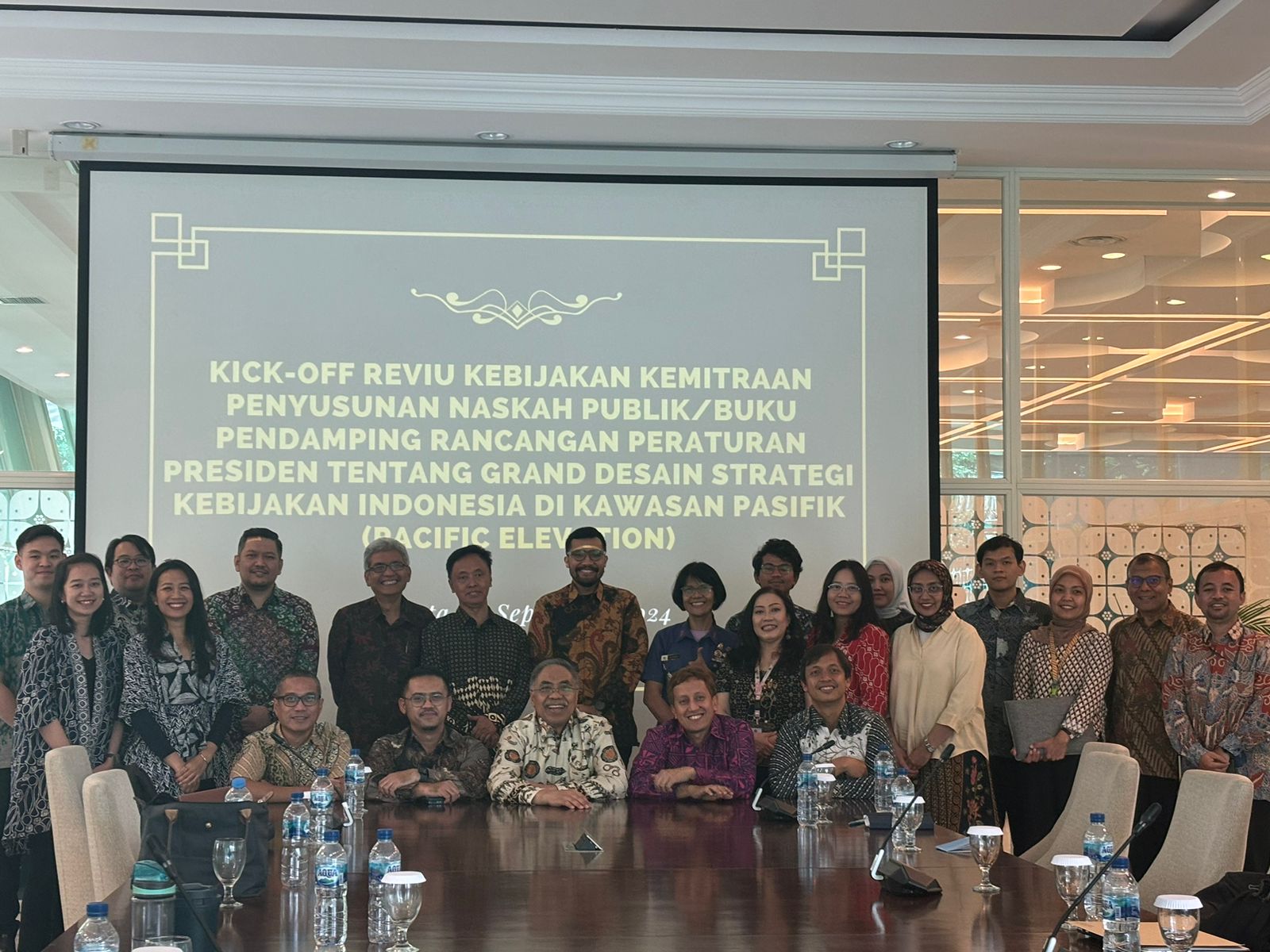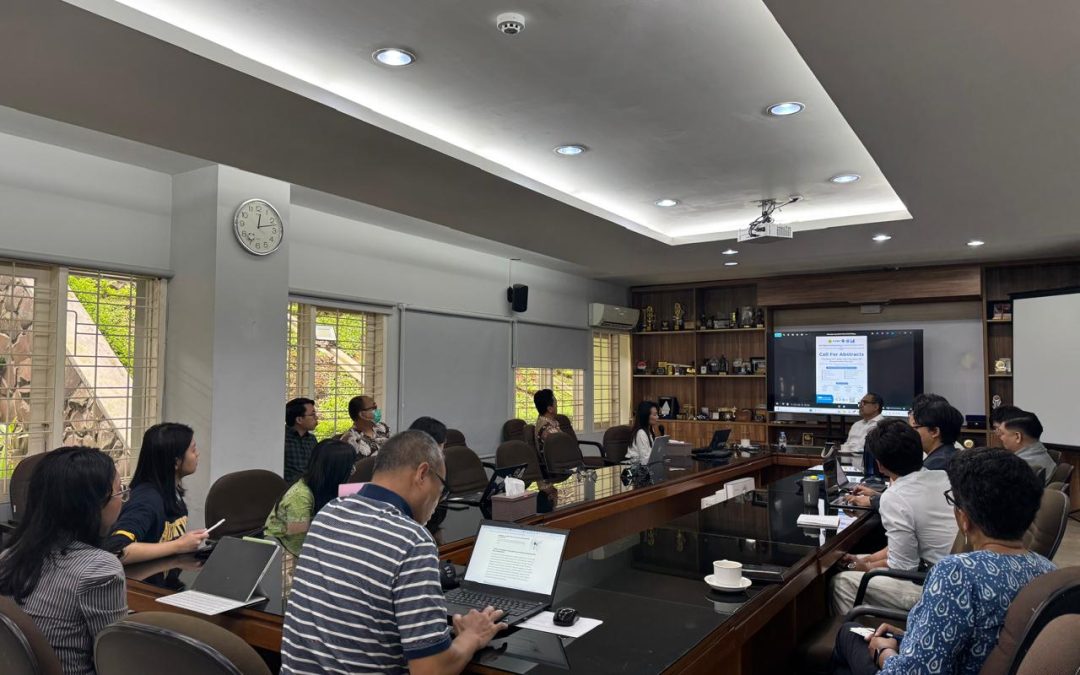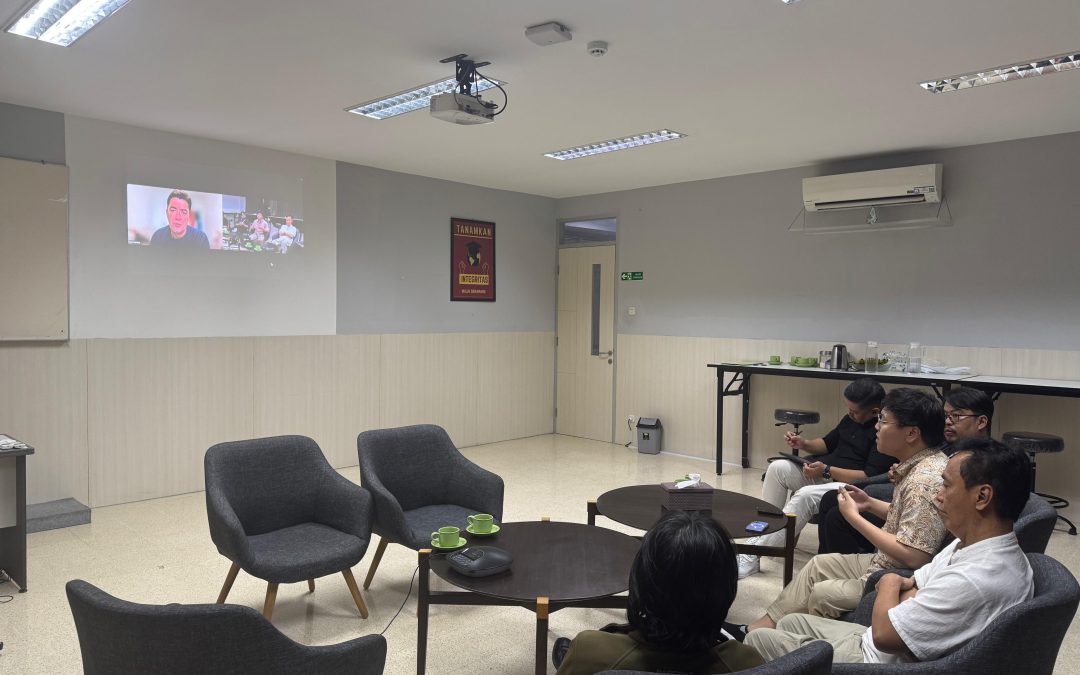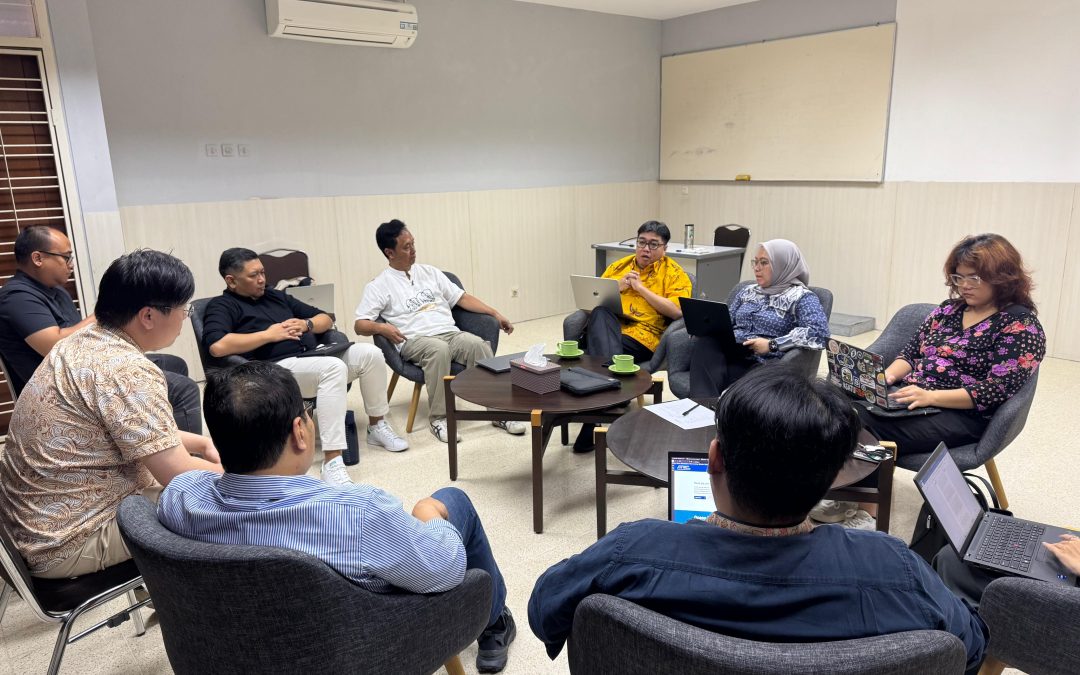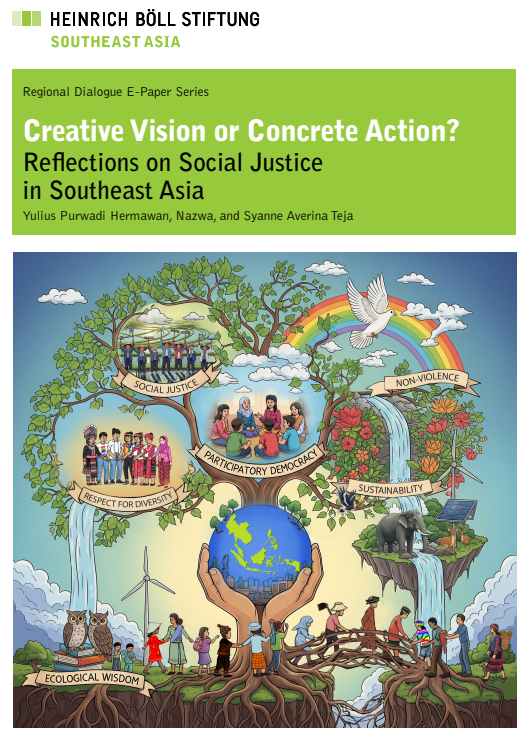The Pacific region holds significant potential in the fields of economics, security, politics, human development, regionalism, connectivity, and technology. However, Indonesia’s focus on optimizing this potential is still considered suboptimal.
On September 19, 2024, the Pacific Elevation Study Team of the Parahyangan Center for International Studies (PACIS) presented an outline of the companion book to the Grand Design of Policy Strategy in the Pacific Region (GDSKPE), also known as Pacific Elevation, at the kick-off event for the Partnership Policy Review for the Preparation of Public Papers/Companion Books for the Draft Presidential Regulation on the Grand Design of Indonesia’s Policy Strategy in the Pacific Region (Pacific Elevation) at the Diplomacy Canteen, Ministry of Foreign Affairs of Indonesia.
The event was opened by the Head of the Foreign Policy Strategy Agency (BSKLN) of the Ministry of Foreign Affairs and moderated by Ms. Diana E.S. Sutikno, an Associate Diplomat at the Indonesian Ministry of Foreign Affairs.
In his remarks, Dr. Yayan Mulyana expressed his appreciation to the study partners (PACIS Unpar and the Institute for Socio-Political Research and Development, Faculty of Social and Political Sciences, University of Indonesia). The Head of the BSKLN emphasized the importance of a specific strategy aimed at optimally realizing Indonesia’s interests in the Pacific Region. The preparation of the Companion Book involved support from Ministries/Institutions involved in implementing the policy strategy in the Pacific.
Indonesia’s engagement in the Pacific has This has been a long-standing practice, such as through diplomatic relations with Fiji in 1974 and the provision of technical assistance. The GDSKPE reflects Indonesia’s renewed commitment to continued cooperation with Pacific countries. This cooperation is expected to contribute to national development in Indonesia. This responds to the hopes of Pacific countries for strengthened relations with Indonesia in various fields.
The GDSKPE is a strategic, holistic, and sustainable policy that prioritizes Indonesia’s national interests in the Pacific.
The accompanying book, currently being prepared, is needed as a means of dissemination to stakeholders who will be involved in the implementation of the policy strategy. The book is also needed for wider public dissemination as a source of information and to build public support for Indonesian diplomacy in the Pacific region. This will foster a strategic partnership among all stakeholders that supports Indonesia’s strategy in the Pacific region.
The publication of the accompanying book supports policy transparency and fosters public support. The policy document is strategic, holistic, inclusive, sustainable, and strategy-oriented.
The Pacific Elevation PACIS Study Team was led by Yulius P. Hermawan, Head of PACIS Unpar, and included Kishino Bawono, Jessica Martha, Idil Syafwi, Aknolt Kristian Pakpahan, and Ratih Indraswari. They were supported by several research students, Adelia Jesica, Nazwa, Muhamad Rafi, Eunike, and Flint Fernando. Each team member outlined the focus of their study: Political Leadership and Regionalism, People-Focused Development, Peace and Security, and Technology and Connectivity.
The online resource person for the FGD was Mr. Dupito D. Simamora, the Indonesian Ambassador to Fiji, Kiribati, Nauru, and Tuvalu. Indonesia seeks strong partnerships with Pacific nations, and therefore requires the formulation of an appropriate strategy to realize its interests in the Pacific region, taking into account the real situation in the region. In his view, the Indonesian Ambassador emphasized the importance of the GDSKPE being concise and agile, and focusing on concrete, sustainable, impactful, and Pacific-centered actions. Regular strategy reviews are also necessary, including consultations with the Pacific Islands Forum (PIF) and the Melanesian Spearhead Group (MSG).
Andrew Mantong, a researcher in International Relations at the Center for Strategic and International Studies, was the second speaker. The CSIS researcher emphasized the importance of Indonesia’s strategic role in various regions, including the Pacific. Issues facing Indonesian foreign policy include the geopolitical consequences for development priorities. Indonesia’s role as a middle power, yet its diplomatic niche, remains unclear. The South Pacific shares Indonesia’s perspectives and values, such as “friends to all.” A precise strategy formulation is needed to optimize the achievement of Indonesia’s strategic interests, including disaster management as a priority sector in Indonesia’s international development cooperation in the Pacific. Specifically, Indonesia can play an active role in shaping regional discourse, building functional networks, and crafting regional cooperation frameworks. The CSIS researcher recommended a deeper study of strategic domestic issues so that Indonesia can adopt a multifaceted approach, including considering the influence of major powers in the region. Strategic grouping is necessary to sharpen the strategic approach based on areas and sectors that emphasize Indonesia’s interests.
The public text/companion book was prepared in collaboration with the Ministry of Foreign Affairs’ BSKLN (National Security and Security Agency), the Unpar PACIS Team, and the University of Indonesia Study Team. The book is scheduled to be completed by December 2024 to support the drafting of the Presidential Regulation related to the GDSKPE.

